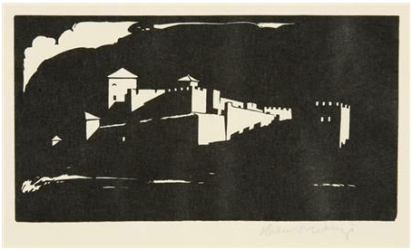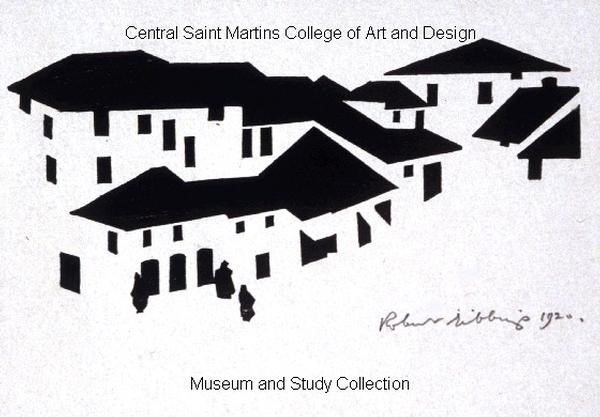Born in Cork, Ireland 23 March 1889 – died Oxford 19 January 1958, Robert Gibbings was an Irish artist and author who was most noted for his work as a wood carver and engraver and for his books on travel and natural history. He overcome the opposition of his parents to study art briefly at the Slade and also at the Central School of Art. He began to experiment with wood engraving, and while on active service in World War I made numerous drawings which he later engraved. After the war he was instrumental in setting up the Society of Wood Engravers.
In 1936 Gibbings became senior lecturer in typography, book production and engraving at Reading University. In 1938 he held a one-man exhibition at Reading Museum entitled ‘Twenty Years of Engraving’. His long interest in natural history and his travels resulted in a number of books which he both wrote and illustrated: Sweet Thames Run Softly (1940) was a particular success. He contributed articles to many magazines and books, and was a regular broadcaster and popular public speaker. In 1955 Gibbings moved from London to Long Wittenham, a village on the banks of the upper Thames. His last book, Till I End My Song, published in 1957, is principally about this village.
Robert Gibbings was in Macedonia in 1917, stationed in Thessaloniki [Royal Munster Fusiliers, 4th Batt.], after he recovered from his neck wound at the battle for Gallipoli 1915. Some of his works inspired by Macedonian region are: “City Wall Salonica which is in the possession of The Fine Art Museum of San Francisco, USA, as well as “A Street in Macedonia” which is in possession of University of the Arts , London, UK, Central Saint Martin Museum and Study Collection.

